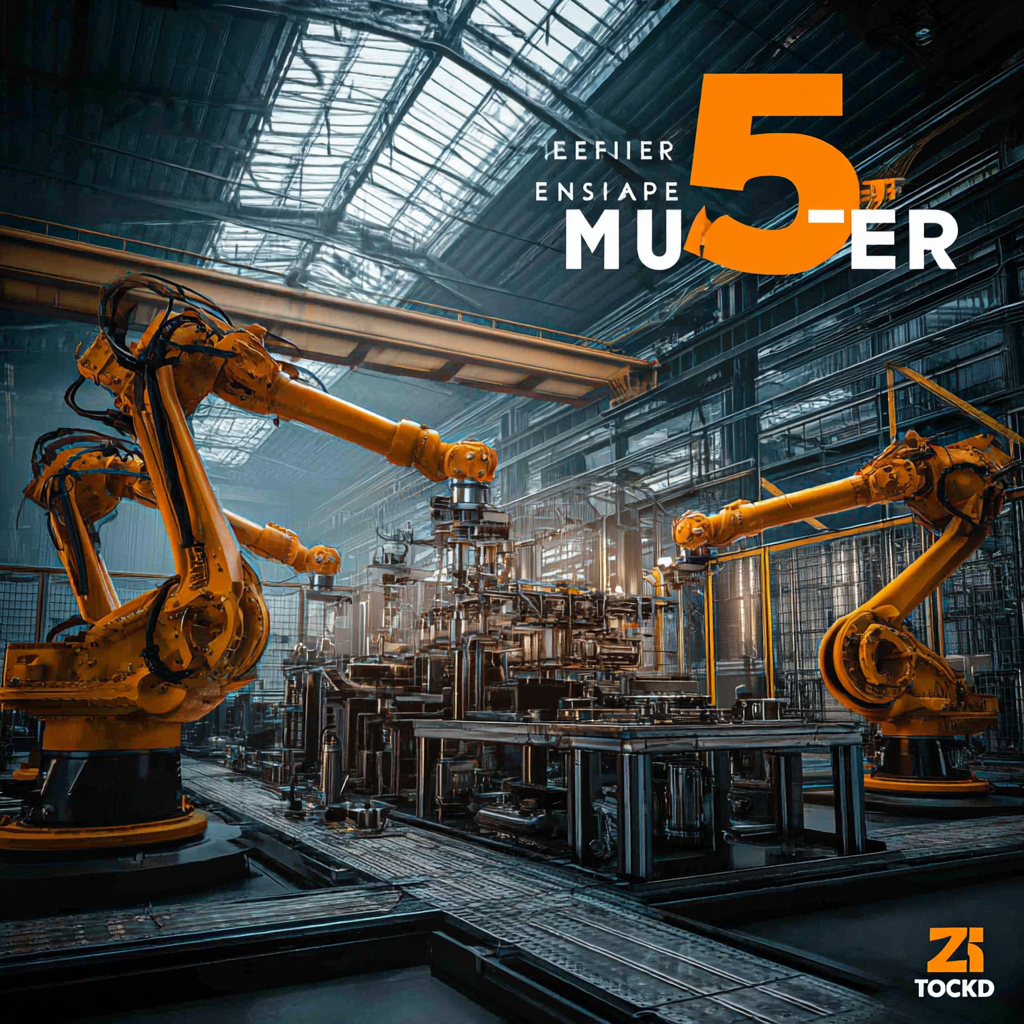In today's rapidly evolving landscape, manufacturers are at the forefront of redefining industry standards through innovative practices and cutting-edge technologies. As we approach the year 2025, the interplay between manufacturing and technological advancements is becoming increasingly significant, prompting a reassessment of traditional methods. This blog will explore the top five manufacturers that exemplify excellence and adaptability, showcasing their contributions to setting new benchmarks in production efficiency, sustainability, and quality. By analyzing these leading examples, we can gain insights into how manufacturers are not only meeting current demands but also shaping the future of their industries. Join us as we delve into the remarkable transformations these manufacturers are spearheading, setting the stage for a new era of operational excellence and inspiring trends in the manufacturing sector.

In today's rapidly evolving manufacturing landscape, leading companies are redefining industry standards through innovative approaches that harness the power of cutting-edge technologies. As we move deeper into the era of Industry 4.0, the integration of AI and advanced analytics has emerged as a crucial driver of transformation. A recent report indicated that while nearly all businesses are investing in AI, only 1% feel they have achieved maturity in this area. This highlights the significant potential for manufacturers to leverage AI to unlock greater efficiency and streamline operations.
Moreover, the 2025 Chemical Industry Outlook emphasizes a growing focus on innovation, sustainability, and resilience, which are essential for driving efficiency and growth in a competitive market. As industries face increasing pressure to adapt to sustainable practices, manufacturers must explore how digital transformations can be effectively implemented across their networks.
The McKinsey Technology Trends Outlook for 2025 further suggests that the foremost technology impactors will emerge from advancements in AI, automation, and analytics, enabling manufacturers to not only enhance productivity but also align with the broader goal of sustainable development. Through such comprehensive transformations, leading manufacturers are setting new benchmarks and reshaping the future of their industries.
In today's rapidly changing industrial landscape, sustainability has become a vital focus for manufacturers aiming to redefine their standards. Pioneering green practices not only enhance a company’s reputation but also contribute to a healthier planet. From minimizing waste to optimizing resource usage, innovative companies are leading the charge in sustainable manufacturing.
One effective strategy is the adoption of circular economy principles. This involves reimagining the lifecycle of products—from design to disposal—by ensuring materials can be reused or recycled. Companies like Patagonia exemplify this approach, encouraging consumers to return used products for refurbishment and resale. Implementing this model can significantly reduce waste and foster loyalty among environmentally conscious consumers.
Another critical practice is the integration of renewable energy sources into manufacturing processes. By shifting towards solar, wind, or other sustainable energy sources, manufacturers can drastically lower their carbon footprints. An inspiring example is Tesla, which generates a significant portion of its energy from solar power for its factories. Investing in these technologies not only enhances operational efficiency but also positions manufacturers as leaders in the quest for environmental responsibility.
| Manufacturer Type | Sustainability Practice | Impact Measurement | Year Implemented |
|---|---|---|---|
| Automotive | Carbon-neutral manufacturing | Reduced CO2 emissions by 50% over 5 years | 2020 |
| Electronics | Recycled material usage | Recycled 1 million tons of e-waste | 2019 |
| Textiles | Water-efficient dyeing processes | Saved 30 million liters of water annually | 2021 |
| Food & Beverages | Zero waste to landfills | Diverted 95% of waste from landfills | 2022 |
| Construction | ECO-friendly building materials | Reduced embodied carbon by 40% | 2023 |
In today's fast-paced manufacturing landscape, the integration of automation and artificial intelligence (AI) is not just an option but a necessity. According to a recent report by McKinsey & Company, companies that fully leverage AI in their operations can increase productivity by up to 40%. This statistic underscores the transformative power of technology in modern manufacturing. By automating repetitive tasks, businesses can reduce human error and increase efficiency, allowing them to focus on innovation and quality improvement.

Implementing automation is essential for staying competitive in the industry. One effective tip for manufacturers is to start small by automating single processes or workflows and gradually scale up. This phased approach minimizes disruption while providing insights into effective integration. Furthermore, leveraging AI tools for predictive maintenance can drastically lower downtime, with the industry seeing a potential reduction of 20% to 50% in maintenance costs, as highlighted by a Siemens report.
To successfully adapt to these technological advancements, manufacturing companies must invest in staff training and development. Ensuring that employees are equipped to work alongside automated systems is crucial. This not only boosts morale but also enhances the overall productivity of the workforce, creating a more agile manufacturing environment ready to meet the challenges of tomorrow.
In today's fast-paced manufacturing landscape, the shift towards customer-centric approaches is transforming traditional industry standards. Companies are increasingly recognizing that consumer engagement is not merely a trend but a foundational pillar for designing products that resonate with their target audience. By actively involving customers in the product development process, manufacturers gain invaluable insights that lead to more innovative and tailored solutions. This engagement can take various forms, from surveys and focus groups to social media interaction, allowing companies to gauge consumer preferences and expectations.
One compelling example of this transformation is seen in the automotive industry, where manufacturers are leveraging technology to create customizable vehicles. By using online platforms for consumers to select features and configurations, companies can produce cars that better meet individual needs while reducing overproduction. This model not only enhances customer satisfaction but also fosters brand loyalty, as consumers feel a deeper connection to products they helped create. As the industry continues to evolve, the emphasis on customer-centric manufacturing promises to redefine how products are imagined and delivered, positioning companies to thrive in an increasingly competitive market.
This bar chart illustrates the customer satisfaction ratings for various products. A focus on consumer engagement has helped manufacturers to enhance their product offerings, leading to improved customer satisfaction.
In today's interconnected world, the way manufacturers operate has a profound influence on international trade and industry standards. Leading manufacturers are not only optimizing their production processes but are also pioneering sustainable practices that elevate global standards. Companies like Tesla and Siemens are setting benchmarks with innovations in electric vehicles and energy-efficient technologies, pushing competitors to adopt environmentally friendly practices and improve product quality.

Moreover, manufacturers such as Apple and Samsung are redefining supply chain management by emphasizing transparency and ethical sourcing. Their commitment to responsible practices not only enhances consumer trust but also influences regulatory frameworks across various countries. As these manufacturers continue to set high standards, they create a ripple effect, encouraging other firms to elevate their operations to remain competitive in the global market.
This shift is essential in fostering fair trade and enhancing the overall quality of goods available worldwide, marking a significant evolution in international manufacturing.
TradeManager
Skype
VKontakte

